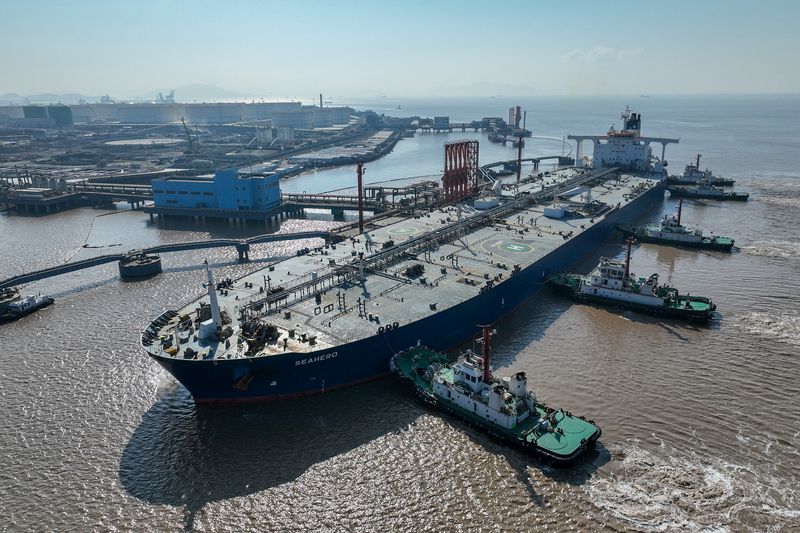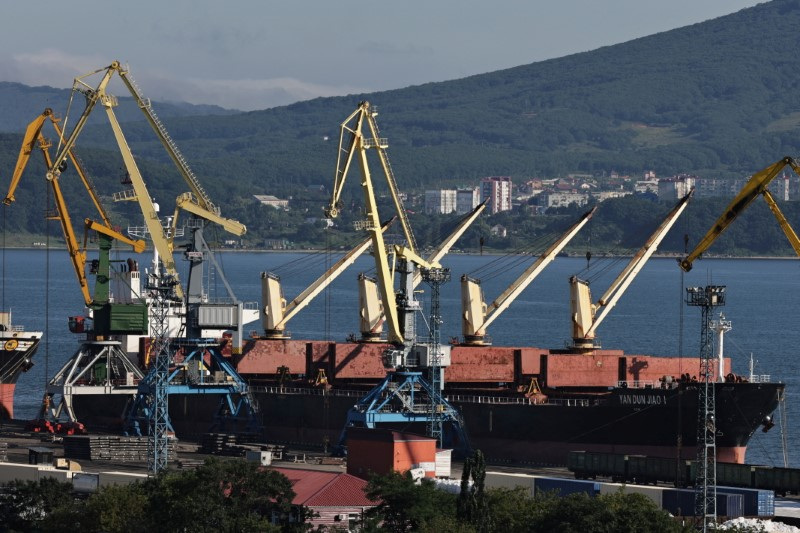By Stephanie Kelly
NEW YORK (Reuters) -Oil prices were near flat on Wednesday as severe cold that disrupted some U.S. oil production offset disappointing economic growth in China that stoked worries about energy demand.
Brent crude futures settled down 41 cents to $77.88 a barrel. U.S. West Texas Intermediate crude futures (WTI) gained 16 cents at $72.56.
In North Dakota, a top oil-producing U.S. state, below-zero degrees Fahrenheit temperatures caused oil output there to fall by 650,000 to 700,000 barrels per day (bpd), more than half its typical output, the state said.
Those supply concerns caused U.S. crude futures to pare losses late in the session, after earlier falling by over $1 a barrel, said Andrew Lipow, president of Lipow Oil Associates.
U.S. domestic crude stockpiles rose last week by 480,000 barrels, according to market sources citing American Petroleum Institute figures on Wednesday. [API/S]
U.S. government data on inventories is due Thursday. [EIA/S]
Weakening prices on Wednesday, China's economy in the fourth quarter expanded by 5.2% year on year, missing analysts expectations and calling into question forecasts that Chinese demand will fuel 2024 global oil growth.
The economic data "doesn't end the headwinds over crude oil demand, the Chinese outlook for 2024 and 2025 is still bleak," said Priyanka Sachdeva, senior market analyst at Phillip Nova.
"(The) oil industry was backing the notion that, despite a bumpy recovery, oil demand from China has been resilient and will likely reach record levels in 2024."
Still, China's oil refinery throughput in 2023 rose 9.3% to a record high, indicating elevated demand even if it lagged some analysts' expectations.
Other signs of steady Chinese demand have also appeared.
Investors kept an eye on naval and air conflicts in the Red Sea (NYSE:SE), which so far has not supported oil prices despite mounting concern about tankers having to pause or reroute, raising shipping costs and slowing deliveries.
Tensions remained high after the U.S. mounted fresh strikes against Iran-aligned Houthi militants in Yemen on Tuesday after a Houthi missile hit a Greek vessel.
The International Energy Agency (IEA) expects oil markets to be in a "comfortable and balanced position" this year, despite Middle East tensions amid a rising supply and slowing demand growth outlook, its executive director Fatih Birol told the Reuters Global Markets Forum.

An optimistic OPEC stuck to its forecast for relatively strong growth in global oil demand in 2024. OPEC said that 2025 will bring a "robust" increase in oil use, led by China and the Middle East.
The U.S. dollar hovered near a one-month high after comments from Federal Reserve officials lowered expectations for aggressive interest rate cuts. A stronger greenback reduces demand for dollar-denominated oil from buyers using other currencies.
